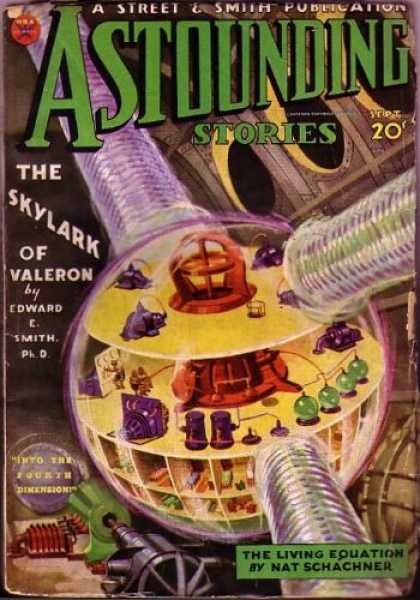|
LITR 4368 Literature of the Future |
Sample answers
for Essay 2:
|
 |
Melissa Holesovsky
Could it Happen? Continuing the Question
While science fiction is still not the most appealing genre in my
opinion, I find myself continuing my midterm question: Could it happen? Given
the materials read in the second half of the semester, I see the appeal it could
possibly have for my secondary English-Language Arts students and the
possibility that these readings would provoke the same level, if not more, of
discussion and critical thinking. With the recently explosion in young adult
fiction that focuses on a dystopic and sometimes high tech fiction or their
combination, I feel compelled to work some of Literature of the Future’s
readings into my own classroom to pose the question of possibility to my
students.
Johnny Mnemonic hosts infinite
theoretical appeal if given to secondary students. While not the most
technologically advanced person, I do not believe we are too far from developing
implants to the Johnny Mnemonic
degree. I feel a reading of this Gibson piece could spark discussion about the
pros and cons of such a device, its abuse possibilities and any moral
repercussions. Students could also have the opportunity to discuss what kind of
information is important enough to be stored this way and, in turn, with it
being so important, what would happen if it was delivered to the wrong people.
Johnny Mnemonic and his implanted
memory chip could be used metaphorically to have students think about today’s
technologies and any implications of making them available worldwide.
Much like Parable of the Sower,
Speech Sounds makes for a fantastic analysis of probability. A virus has
removed speech from most of the population and even normal thought processes
from a vast majority. Here students could theorize about possible causes of the
virus; there is the possibility it could be a man-made cause like pollution or
even a recurrence of something from our past. The violence feared by those who
still have speech speaks to the human condition; I would like to have my class
talk about the likelihood of our population resorting to the level of violence
seen in Speech Sounds. It would also
be enlightening to have each class member independently draft a follow-up
chapter.
Once visiting The Time Machine,
I would want to introduce the narrative of
Chocco to
my students. The Time Machine takes
us far into the future where humans have ceased to exist and the Earth has
returned to its origins. With Chocco,
the River People discuss and learn from the extinct Machine People. I would want
my students to consider the possibility of extinction of the current population
and discuss what, if any, mistakes are being made on the planet. Would they
think it would be possible for our own technological advances to be our own
demise? I would also want them to closely consider the possibility of a
civilization wipe out and possible return to primitive living. What we consider
being primitive supported early humans for thousands of years; is it possible we
would ever return to that? This could also be a chance to allocate
self-reflection time for students allowing them to consider their own choices
and what impact they may have.
Literature of the Future has given me many great ideas for my own
classroom and I look forward to the stimulating conversations I hope my
classroom will foster. If given a chance, I believe there are many students who
would seize the opportunity to not only answer that question but start to
question more of what they read and forever arm them with the skill of critical
thinking.
